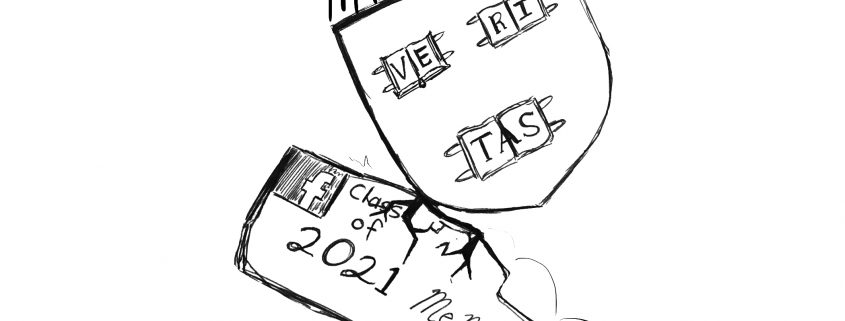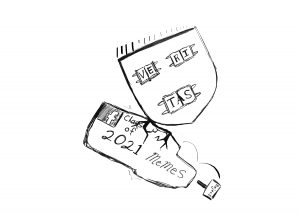Universities should be able to revoke admissions based on online behavior
Harvard College reportedly rescinded the admissions of at least 10 prospective freshmen, according to The Harvard Crimson, based on sexually explicit and racially charged statements and memes made by students in a private Facebook group.
In an increasingly digitized world, an individual’s online presence has integrated with their identity and character — which reflects and possibly represents the institutions in which they are affiliated. Universities have generally reserved the right to revoke a student’s admission status for instances such as lying on a college application, failing to uphold academic performance, or for committing a crime or engaging in questionable behavior.
Institutions, however, should also hold the right to revoke admission based on inappropriate, offensive behavior or speech that does not align with their values or mission as a school.
But first, admission officers and university officials should analyze each situation brought to their attention in a case-by-case fashion. This will ensure the university’s ultimate decision does not infringe upon a student’s right to free speech. Offensive speech is a subjective issue. Universities must realize the importance of encouraging intellectual debate and discussion in classrooms and forums without fear of censorship or consequences.
For example, conservative speakers like Charles Murray and Milo Yiannopoulos have been deemed racists and xenophobes. But their events can provide students a space to critically analyze and debate their perspectives. There is an explicit difference between students debating diverse viewpoints in an intellectual setting and sharing controversial, offensive content online that stands in opposition to the values of the private institution of which admitted students are hoping to belong.
The meme content leaked to Harvard officials was not provocative for neither educational nor intellectual purposes. Instead, these memes -— which attempted to make light of the Holocaust, child abuse and sexual assault — were made with no other objective than to get some cheap laughs at the expense of marginalized groups. Although humor, like offensive speech, is subjective, institutions have to draw the line somewhere, especially when these discretions are occurring in Facebook groups that bear their names.
Although universities cannot always control what students say or post, students must realize that their actions and words can potentially be shared when they post online, without their consent or knowledge. The shared messages reflect a general cultural and social insensitivity in those who said them, and Harvard was well within its rights to make a powerful statement against that kind of rhetoric.
Since Harvard officials received these sexually and racially explicit statements through a leak in a private group chat, the line between these rescinded students’ public and private lives have become blurred and, therefore, a point of debate. As a private institution, however, Harvard enjoys the broad authority to admit or revoke a student on the basis of enforcing its standards of conduct.
The Constitution’s free speech clause protects deeply offensive, even racially charged, speech if it exists without the implication of imminent violence. Speech, however, that is considered lawful is not always ethically correct, socially acceptable or responsible. It is in universities’ best interests to recruit a student body that will uphold its values. Universities have a reputation to uphold in the public sphere, and since private messaging groups and social media posts are so easily shared, leaked and made public, students should understand and bear the consequences of what they decide to post online. In a Kaplan Test Prep survey of university officials, 35 percent said they viewed student’s social media when making admissions decisions, and 42 percent said that what they saw negatively affected the student’s admissions prospect. Today, an individual’s digital footprint carries heavy weight and is a reflection, or extension, of their identity. The digital sphere holds a plethora of personal and private information that can easily be made public. Thus, students must be held accountable for what they decide to share about themselves.
This is not a debate about whether students’ free speech has been infringed upon, but a call to action to students across the country to be more mindful about the content they post, the rhetoric they use and the image of themselves they choose to put forth to the world.


